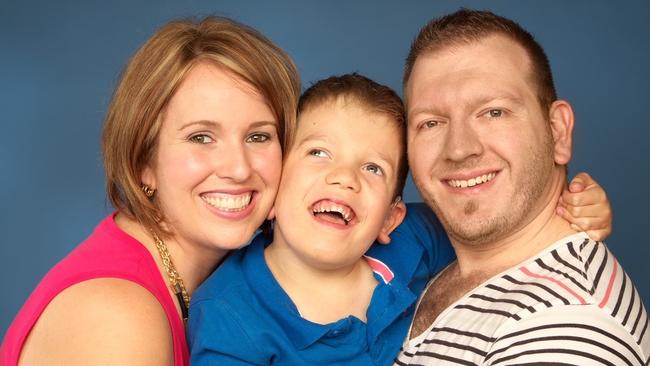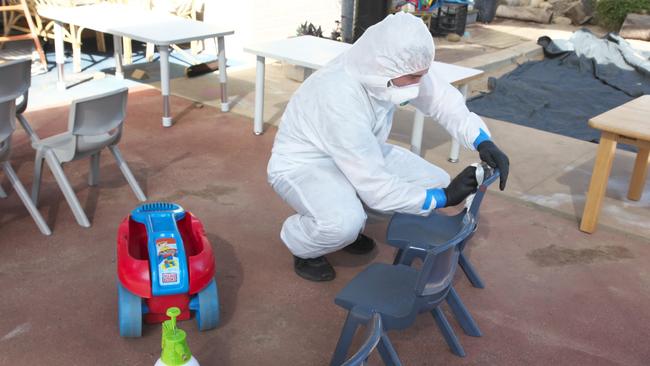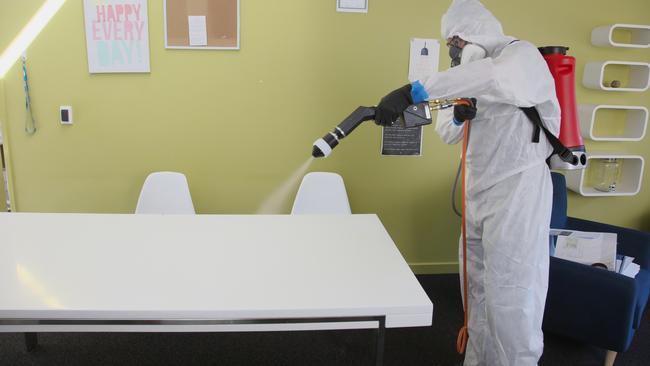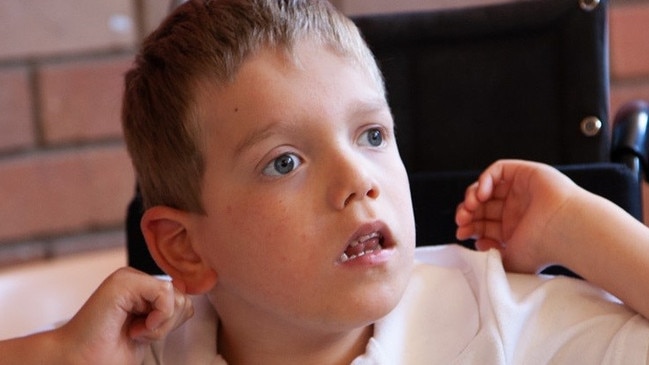Dad helps develop TGA approved bacterial killer after losing son to infection
A dad who watched his late son suffer hospital acquired infections has helped create a revolutionary surface spray that kills superbugs in hospitals — as well as coronavirus.
NSW
Don't miss out on the headlines from NSW. Followed categories will be added to My News.
A father and businessman has been inspired by the death of his son to help develop a spray that not only kills coronavirus on surfaces for months on end but promises to help minimise hospital-acquired infections.
Tim Smith said SurfaceWise is a non-toxic spray treatment that covers surfaces with billions of electrically charged microscopic spikes that can destroy bacteria and viruses on contact, like road spikes on a tyre.
“They hit the spikes and they disintegrate and fall apart. It’s a mechanical kill and stops anything growing on that surface,” Mr Smith said.
The product was inspired by the experience of his son Marcus, who died in 2019.

Marcus was born with a rare chromosome deletion condition that left him with profound physical and intellectual disability and landed him in hospital frequently. He could not walk or talk. In 2019 the 12-year-old died in his sleep.
“His little body just gave out. He had the most beautiful last day, he played with his sister, gave his mother the most amazing hug, and that night when I checked on him he held my hand and smiled. Twenty minutes later he died in his sleep. You could say he knew his time had come,” his devastated dad said.
Marcus picked up numerous infections in hospital over his short life.
“I’ve lost count of the infections he had, but the superbugs are insidious, you can’t see them,” he said.
“Marcus picked up a staph infection in his ear. What we think is that when they cleared out his ear to put drops in, the cotton bud swabs were put on the tray table and not in a container and then they were used to clean his ear.
“It took us six months of repeated rounds of antibiotics over and over again.”


One in four patients in hospital who end up with a blood stream infection will die.
“Traditional disinfectants don’t provide the protection we need when we go into a hospital,” Mr Smith said.
“They only do momentarily but the second someone coughs, or sneezes or touches that surface, it reaccumulates all the viruses and bacteria.
“I have been working with Allied Bioscience in America from day one and it came from the simplest view there had to be a better way to protect people from hospital-acquired infections.
“I got involved very early on because I knew with a child with special needs we were at increased risk.
“How do we take what has been around for many years — to stop mould and mildew on the side of a building.
“It is basically putting down billions of little spikes that makes a surface hostile to germs and re-engineer that so it will stay on the surface for weeks and months and offer continuous protection.”

The antimicrobial surface product, which has recent Therapeutic Goods Administration approval, has been tested in a major US hospital intensive care unit.
“The average bacterial count on all treated surfaces was reduced by 99 per cent for at least eight weeks after treatment,” the study, which was published in the American Journal of Infection Control, found.
Another study published in Clinical Infectious Diseases last year found a 36 per cent decline in health-acquired infections in patients across two hospitals after the surface coating application. Hospital units without that protection had no decline in infection rates.
The product has now been altered to kill COVID-19, which has implications for hospital, transport and nursing homes. Studies are currently under peer review.
“My main goal is that no-one gets a hospital-acquired infection again,” Mr Smith said.
More Coverage
Originally published as Dad helps develop TGA approved bacterial killer after losing son to infection




